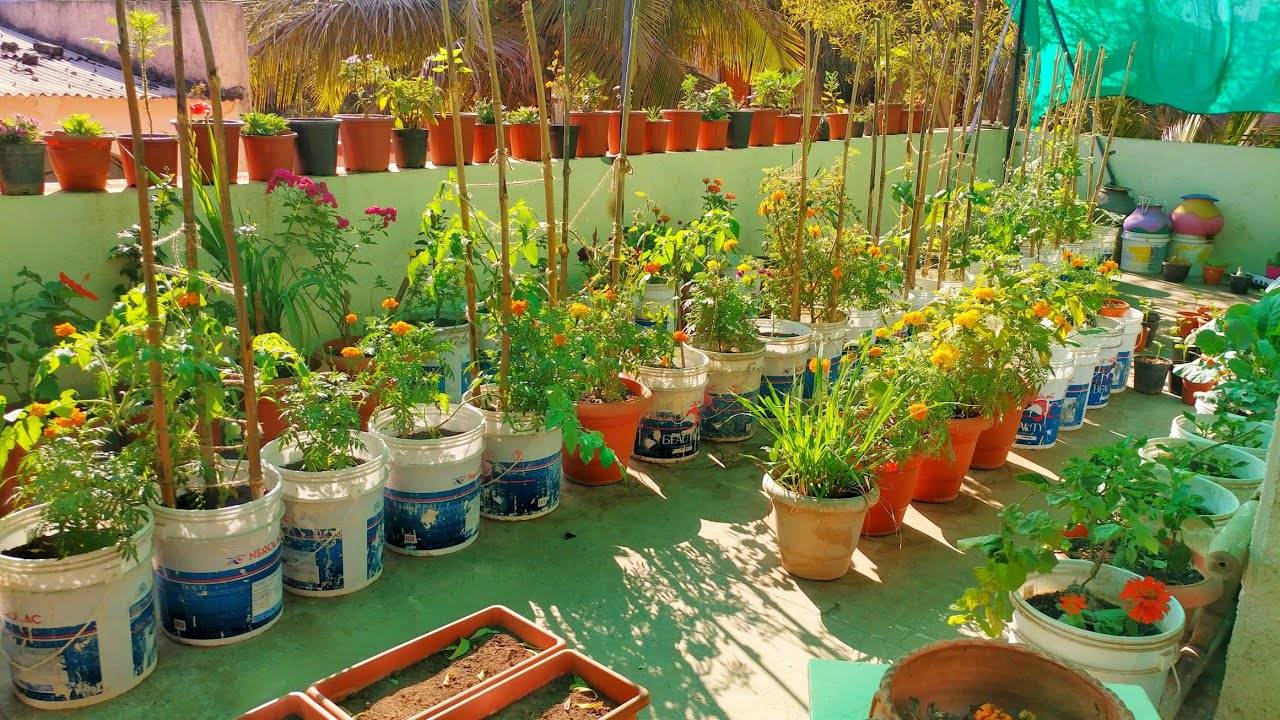
Hema Rao, 84, climbs one floor of her Bengaluru home every morning with a tiny basket in hand. She wanders around her apartment complex's patio, carefully scrutinizing the blue-coloured drums of lush vegetable plants that cover 12,000 square feet.
She selects the ripest vegetables, takes out her scissors, snips the branches, and gathers what she needs in her basket. She then returns home with the produce.
For the past five years, the octogenarian has kept this practice, giving her family fresh vegetables every day.
"My mother brought five eggplants and three bitter gourds the other day," Aditya explains. “Knowing that these would not be enough to satisfy our family of five, she devised a unique recipe that combined the two with jaggery and spices. It turned out to be quite tasty."
These, according to Aditya, are the small joys of having an organic terrace garden. "Call it a hobby or whatever you want," he tells The Better India, "but having a garden with chemical-free vegetables has brought us multiple benefits."
A few residents of Bellandur's Ittina Anai Apartments have banded together on the terrace to cultivate a variety of vegetables, inspired by the Rao family, in order to lessen their reliance on market produce and progress toward organic farming. While the Raos started with 6,000 square feet, they were soon joined by a few others.
The Raos gather approximately 12 kilograms of vegetables every week and claim that their grocery and other family expenses have decreased by 60%.
"My family is from Hyderabad, and we relocated to Bengaluru in 1999," Aditya (47) adds. “Back then, we lived in a 2-acre home where my mother raised all of our vegetables in her kitchen garden. We relocated here in an apartment complex in 2012, and she began to miss being able to grow her own food, something she loved doing in Hyderabad."
He claims that this prompted the family to transform their terrace into an edible garden, which provides them with not just sweet solace but also other health benefits.
Hema and her daughter-in-law Chitralekha started growing food on a regular basis. "My mother missed the free area to move around in the early and evening hours because of the apartment structure. So, I brought home a few used drums, and she began growing vegetables in them. Green leafy vegetables like coriander, basil, mint, spinach, and gourds, as well as tubers like beetroot, radish, carrot, and potato, have now grown into a full-fledged garden," he says.
The Raos gather approximately 12 kilograms of vegetables every week and claim that their grocery and other family expenses have decreased by 60%.
"My family is from Hyderabad, and we relocated to Bengaluru in 1999," Aditya (47) adds. “Back then, we lived in a 2-acre home where my mother raised all of our vegetables in her kitchen garden. We relocated here in an apartment complex in 2012, and she began to miss being able to grow her own food, something she loved doing in Hyderabad."
He claims that this prompted the family to transform their terrace into an edible garden, which provides them with not just sweet solace but also other health benefits.
Hema and her daughter-in-law Chitralekha started growing food on a regular basis. "My mother missed the free area to move around in the early and evening hours because of the apartment structure. So, I brought home a few used drums, and she began growing vegetables in them. Green leafy vegetables like coriander, basil, mint, spinach, and gourds, as well as tubers like beetroot, radish, carrot, and potato, have now grown into a full-fledged garden," he says.
While organic gardening is difficult and generates fewer crops, Aditya believes it is beneficial to one's health.
"Right now, we're harvesting 12 kilograms of vegetables per week. Using chemical fertilizers, we may have increased yield by 50-70 percent. However, this would defeat the goal of eating fresh, healthful food," he continues.
Aditya says that their initiative has sparked the interest of ten residents in the complex.
"Some of them left later, but we're growing food on 12,000 square feet of space together. Residents of 72 flats scattered across four buildings are both direct and indirect benefits. "The surplus produce is used by the food growers to sell, share, or distribute," he says.
Aditya also wants enthusiasts to realize that keeping an organic patio or kitchen garden takes a lot of passion and effort.
"Many people ask about the activity's cost-effectiveness and returns. However, everyone should be aware that such an exercise is not on a commercial scale and can only meet the needs of a small group of people.











